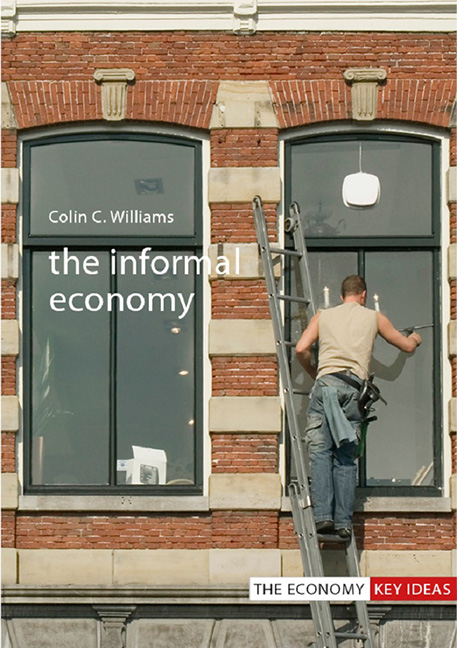2 - Theories explaining the informal economy
Published online by Cambridge University Press: 09 August 2023
Summary
Introduction
The aim of this chapter is to review the major competing theories of the informal economy, namely: modernization theory, which argues that economic underdevelopment and unmodern systems of governance cause large informal economies; neoliberal theory, which asserts that too much government intervention (e.g. high taxes, burdensome regulations and controls) is the cause; and political economy theory, which conversely argues that inadequate state intervention and the lack of protection of workers are the causes. This is followed by a review of institutional theory which asserts that formal institutional failures lead to an asymmetry between formal rules, and informal norms, values and beliefs, resulting in greater prevalence of the informal economy.
Modernization theory
Over the course of the twentieth century, modernization theory was the dominant explanation for large informal economies. In this theory, the informal economy is part of the pre-modern economic system and its presence in economies will reduce as the modern formal economy becomes established (Geertz 1963; Gilbert 1998; Lewis 1959; Packard 2007). As Ray Bromley (2007: xv) explains, the informal economy from this perspective is “unimportant and destined to disappear” with economic development and the modernization of governance. Sometimes referred to as “residue” or “dual economy” theory, the informal economy is portrayed as a leftover from an earlier economic system which is disappearing with economic development and modernization.
This dualistic representation of the economy as composed of discrete formal and informal economies is associated with scholars such as Julius Boeke (1942) in relation to his studies on South-East Asia, and the economist Arthur Lewis (1954). The depiction of the formal and informal economies as dualistic opposites differed to the then dominant neoclassical economic models, although Lewis was in that tradition. At the core of the dualist view was the view that less developed countries had two different sectors. One was capitalist, modern, progressive, dynamic and depicted as capital-intensive. The other, the “subsistence” or “peasant” sector (or in later terminology the “marginal” sector) was pre-capitalist, reliant on family labour, unsophisticated in its production and operations, used low technology and possessed poor productivity.
- Type
- Chapter
- Information
- The Informal Economy , pp. 17 - 34Publisher: Agenda PublishingPrint publication year: 2019

